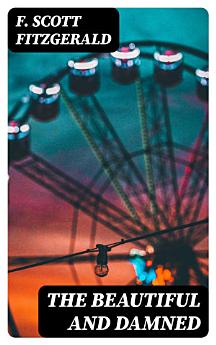The Beautiful and Damned
F. Scott Fitzgerald
May 2022 · DigiCat
Ebook
307
Pages
family_home
Eligible
info
reportRatings and reviews aren’t verified Learn More
About this ebook
The Beautiful and Damned is a quintessential work of F. Scott Fitzgerald that skillfully explores the lives of the privileged elite in the Jazz Age, marrying poetic prose with a critical lens on the American Dream. The novel follows the tumultuous relationship between Anthony Patch and his wife, Gloria, as they navigate the glitzy yet hollow world of wealth, ambition, and moral decay. Fitzgerald's signature style, richly layered with symbolism and vivid imagery, evokes a sense of nostalgia tinged with disillusionment, reflecting the cultural context of the 1920s, marked by both opulence and existential despair. F. Scott Fitzgerald, a prominent figure of American literature, drew upon his own experiences within the affluent social circles of the time to craft this narrative. His personal struggles with wealth, status, and addiction deeply informed his portrayal of characters who oscillate between the allure of glamour and the pitfalls of decadence. Fitzgerald's keen observations on social dynamics and human folly resonate throughout the novel, making it a poignant critique of the era's romanticized notion of success. Readers seeking a profound exploration of love, ambition, and the consequences of excess will find The Beautiful and Damned both enchanting and cautionary. Fitzgerald's nuanced examination of his characters' lives serves as a timeless reminder of the complexities of desire and the ultimately destructive nature of unattainable dreams.
About the author
F. Scott Fitzgerald (1896-1940), an iconic figure in American literature, is widely regarded as the chronicler of the Jazz Age, his work embodying the decadence and disillusionment of the 1920s. Born in St. Paul, Minnesota, Fitzgerald attended Princeton University but left to join the Army during World War I. Despite his early departure from university, Fitzgerald published his first novel, 'This Side of Paradise' (1920), to critical acclaim, establishing his literary career. His novel 'The Beautiful and Damned' (1922) is a brilliant depiction of the hedonistic and destructive lives of the American elite post-World War I, offering a poignant commentary on the era's moral decay. Fitzgerald's elegant prose and keen social insight is exemplified in his complex characterizations and vivid descriptions. Although his most famous work, 'The Great Gatsby' (1925), is perhaps the most profound exploration of the American dream, all of Fitzgerald's works capture the spirit of an era and its preoccupation with wealth, success, and the pursuit of happiness. His literary style, characterized by lyrical writing and sharp social critique, has cemented his reputation as one of the greatest American writers of the twentieth century. Tragically, his genius was accompanied by personal struggles, including financial difficulties and his wife Zelda's mental illness. Fitzgerald's later years were marked by a decline in popularity, but posthumous recognition has secured his place in the American literary canon.
Rate this ebook
Tell us what you think.
Reading information
Smartphones and tablets
Install the Google Play Books app for Android and iPad/iPhone. It syncs automatically with your account and allows you to read online or offline wherever you are.
Laptops and computers
You can listen to audiobooks purchased on Google Play using your computer's web browser.
eReaders and other devices
To read on e-ink devices like Kobo eReaders, you'll need to download a file and transfer it to your device. Follow the detailed Help Center instructions to transfer the files to supported eReaders.








